When women are healthy, well-nourished and well cared for with strong support systems, pregnancy and birth are safe. Physiological birth is an amazing natural and instinctive process that usually occurs without outside coaching or interference. When a well nourished woman is undisturbed in labour,
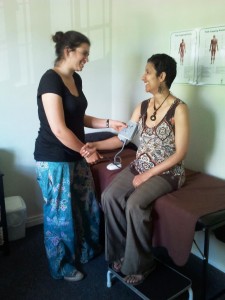
the neuro-chemicals and hormones of birth are released and protect both mother and baby from harm.
The three main reasons why women die in South Africa are firstly related to infection and the high incidence of HIV positive mothers, secondly to haemorrhage after birth and thirdly, to high blood pressure during pregnancy.
Good nutrition is key to preventing maternal complications that result from these conditions. Mothers in poverty stricken areas and townships eat mainly starch based diets devoid of the necessary protein and micronutrients that keep them healthy during the strenuous event of birth. Maternal mortality will improve when we are truly aware of what poor nutrition and poor care does to pregnant women and we take steps to ensure better nourishment of our mothers.
It will improve when young girls are protected and nurtured, when teenage girls are educated and empowered and when women are respected and assisted.
Maternal mortality will improve when all women care for each other and the privileged ones teach and help the less privileged ones. It will improve when we have numerous skilled, caring and well trained midwives to serve pregnant women in South Africa. Maternal mortality will improve when midwives listen to and educate women. It will improve when midwives and doctors communicate with ease and respect about the women in their care
For this to happen we need to stand together in South Africa and all over the world for women’s rights, for our freedom to choose, for access to health care and basic services. Women need to understand about their own health, how to grow their own food and keep themselves well nourished. They need to know they have options and choices. When women feel more cared for, they are better able to care for themselves and subsequently their children. Women will die less in childbirth when we all care more.
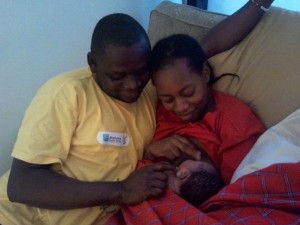
Sheila and Papy, for example, were carefully monitored during the pregnancy and antenatal care. They were encouraged to follow a high protein diet and stresses were kept to a minimum, despite the fact that they were far from family support and had relocated to a new city. Sheila subsequently gave birth to their son at home in the presence of a midwife, after labouring calmly and without complications. A minor perineal tear was sutured at home by the midwife who carried the necessary medical equipment in her midwifery bag and the new family began their journey together. Postnatal visits by the midwife checked the health of mother and baby during the first week after birth. The parents were overjoyed at their achievement, and their journey ended in success, a live healthy mother and healthy baby.
However, women die in childbirth every day in South Africa. A few months ago a woman died after a caesarian section at a local private hospital of an unknown cause. I have since heard of two women who died of haemorrhage in theatre, after the baby had been born by caesarian section.
Why is it important that we should know about women who die in labour or childbirth? It is important because when we are aware of women who die, we can ask questions and become more aware of the causes, thus increasing public knowledge. Pregnant women matter because the most crucial time of a child’s life happens in the womb and the first few months and years of life.
The idea for the Safe Motherhood Quilt South Africa project began when Ruth Ehrhardt and myself were driving past a township on a daily basis and wondering how we could help. South Africa ranks 34th place from the bottom of the list, with 172 countries included in the ranking. In South Africa 300-400 women per 100 000 women die from pregnancy and childbirth, while in the United Kingdom only 12 women per 100 000 die.
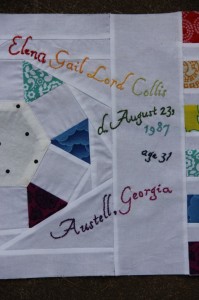
Ruth Ehrhardt (www.homebirth.org.za) and myself (Marianne Littlejohn) invite you to join us as we commence the Safe Motherhood Quilt South Africa project (SMQSA) in order to honour those women in South Africa who die of pregnancy related causes and increase public awareness.
Please write to us and share your story if you have lost a mother, relative or friend. If you are a relative of a mother who has died from pregnancy or birth, write and tell us your story: send us the name, the date of death and where the mother lived, the age at which she died and we will create a square of quilt to honour each woman whose story we receive.
You may send us your own design, or even send us a quilted square.
Please go to the contact page on the Spiritual Birth website and write your story and send. Or send an email to marianne@spiritualbirth.net or ruth@homebirth.org.za. Volunteers will create squares and when we have sufficient squares we will exhibit the quilts both online and publicly to commemorate mothers who can no longer speak for themselves.
Lets unite and make a difference for our nation of mothers.
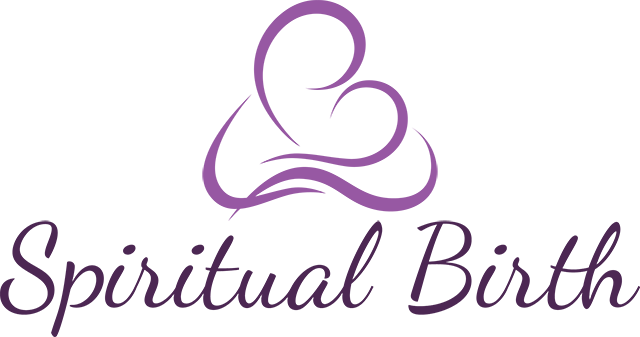
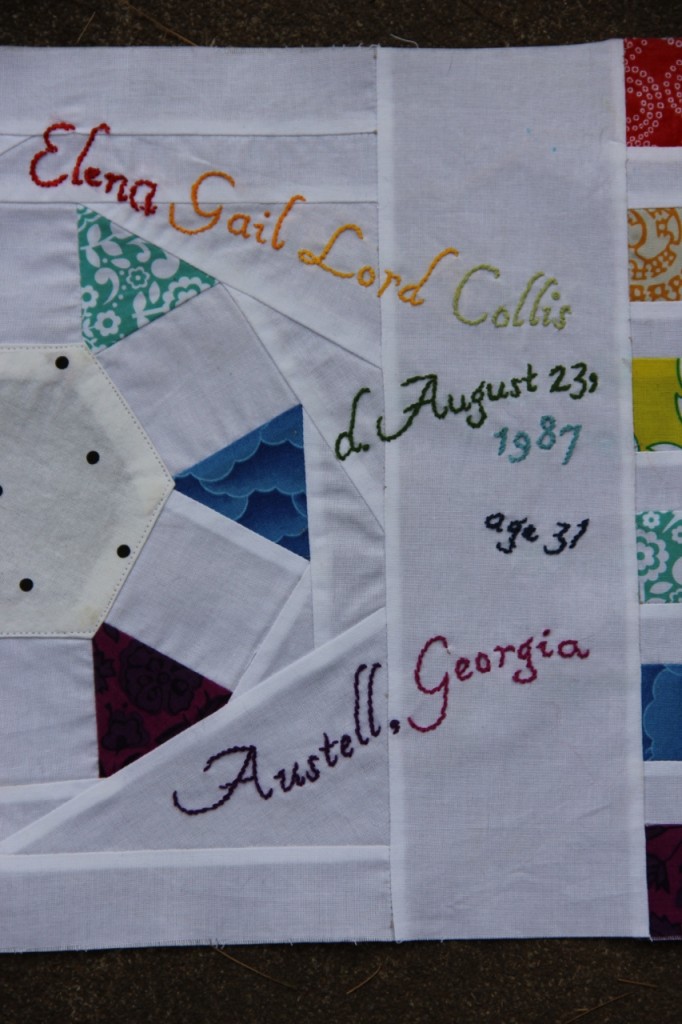
1 thought on “Safe Motherhood Quilt South Africa”